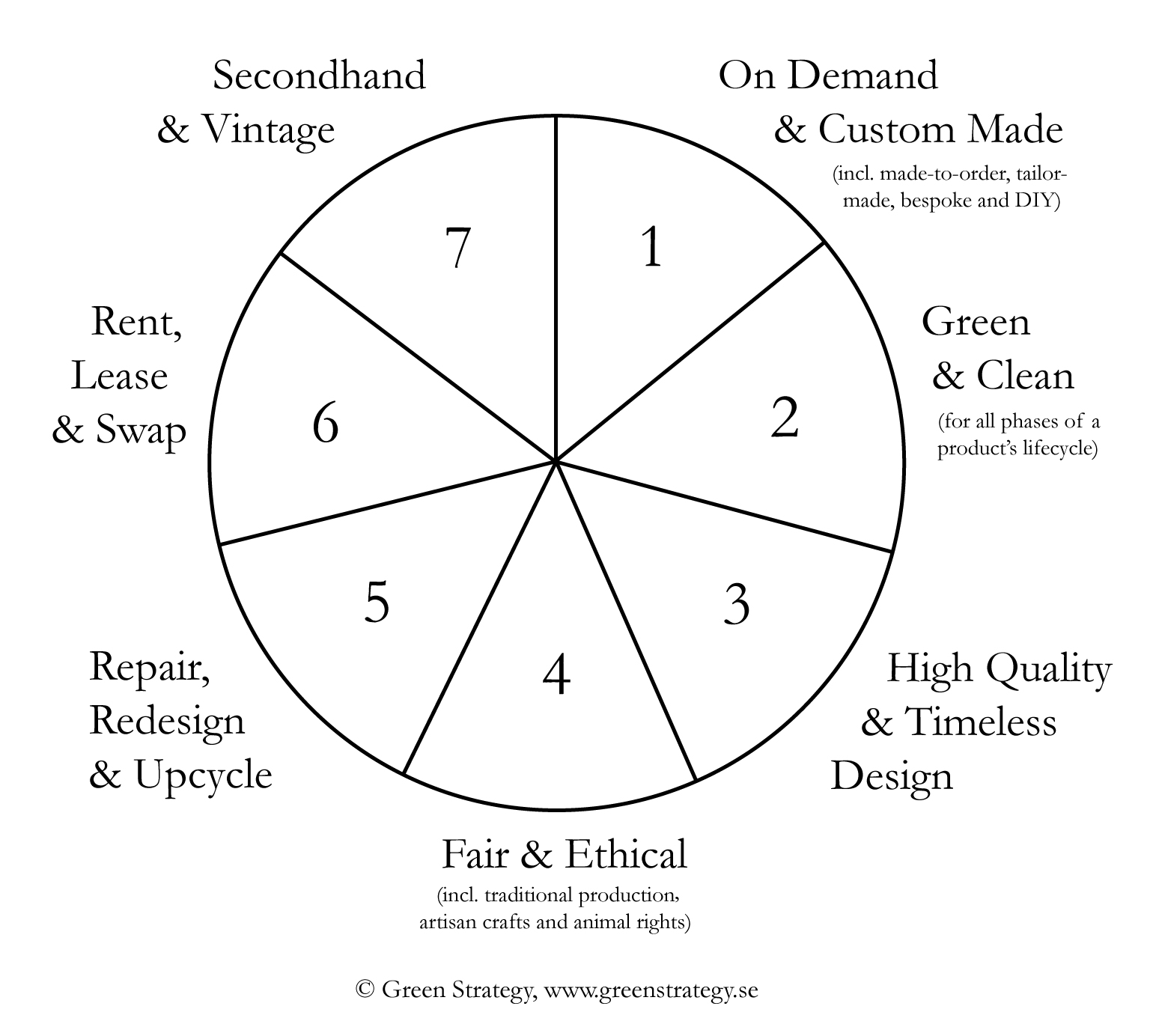Uncover Cape Town Sustainable Fashion Boutiques and Brands
Uncover Cape Town Sustainable Fashion Boutiques and Brands
Blog Article
Keep Ahead of the Contour by Checking Out Innovative Fashion Trends
In a sector as dynamic as fashion, staying ahead entails more than just following existing trends-- it demands an exploration of technology. The merging of modern technology and style proclaims a brand-new period of customer interaction.

Embracing Smart Textiles
In the last few years, the fashion business has observed a transformative change with the combination of clever fabrics, an innovative advancement that blends modern technology with fabric. This advancement represents not just a blend of visual appeals and capability yet likewise a significant jump in the direction of sustainability and customization in style. Smart fabrics, also referred to as e-textiles, installed advanced electronic devices such as sensing units and conductive threads within the textile, making it possible for garments to communicate with the setting or the wearer.
These textiles are made to monitor physiological specifications, such as heart rate or body temperature, providing real-time health and wellness analytics. Beyond health and wellness applications, clever fabrics are also being used for adaptive clothing, which can alter shade or pattern in response to ecological stimuli, thus offering a dynamic style experience.
Moreover, the development of energy-harvesting textiles that create power from activity or sunlight is leading the way for self-dependent wearable modern technology. This innovation is appealing to ecologically conscious consumers and designers aiming to minimize the eco-friendly impact of style. As research and growth in this area advancement, wise fabrics are expected to become progressively widespread, reshaping the landscape of modern fashion with their multifunctional capacities.
The Rise of 3D Printing
Changing the manufacturing landscape, 3D printing has actually become a game-changer in the fashion business. This advanced innovation has allowed developers to press the boundaries of creativity, producing detailed and tailored garments that were formerly inconceivable. By leveraging digital style and additive manufacturing, 3D printing assists in the production of intricate geometries and patterns, enabling designers to explore new structures and structures.
A notable benefit of 3D printing in vogue is its ability to produce on-demand, minimizing waste and lowering supply needs. This performance not only enhances production processes but likewise permits fast prototyping, making it possible for designers to bring their visions to life in a much shorter duration. In addition, 3D printing sustains personalization somewhat unparalleled by traditional methods, using special layouts and personalized fits tailored to specific consumer preferences.
The rise of 3D printing has actually also equalized fashion, making it accessible to arising developers who can now make top quality pieces without considerable monetary investment in traditional production infrastructure. As innovation continues to breakthrough, the fashion business is positioned to harness the complete potential of 3D printing, checking out brand-new products and methods that will definitely redefine exactly how fashion is developed and produced.
Sustainable Style Advancements
As the style sector faces the pushing requirement for ecological obligation, sustainable style developments have actually arised at the forefront of transformative adjustment. The expanding awareness of ecological effect has fueled a change towards even more eco-conscious practices and materials. Brand names and designers are now prioritizing sustainability, integrating methods that lessen waste and decrease carbon footprints.
One considerable growth is the rise of circular fashion, which highlights recycling and upcycling to extend the lifecycle of garments. This approach not only decreases waste yet also motivates consumers to adopt a more mindful technique to garments usage. Additionally, the use of sustainable weblink materials, such as organic cotton, hemp, and recycled polyester, has actually gained traction. These products require less water and power throughout production, considerably minimizing ecological impact.
An additional development depends on the adoption of cutting-edge dyeing methods that utilize natural dyes or waterless processes, consequently reducing the huge quantities of water and chemicals generally utilized in fabric dyeing. Furthermore, improvements in biotechnology have actually led to the production of lab-grown natural leather and textiles, supplying ecologically pleasant and cruelty-free choices to traditional products. Via these pioneering efforts, the apparel industry is making significant strides towards a more sustainable future.

Tech-Integrated Apparel
Tech-integrated apparel stands for a groundbreaking fusion Our site of style and innovation, improving how people communicate with their garments. This innovative domain name is noted by the incorporation of clever fabrics and ingrained digital parts, enhancing both functionality and visual charm. From physical fitness trackers embedded in sportswear to heated coats controlled using smartphone apps, tech-integrated apparel supplies consumers unmatched convenience and flexibility.
Pioneering brands are driving this trend, focusing on creating garments that react to environmental stimuli or user commands. For example, some garments can change color or pattern in feedback to temperature level shifts, while others integrate biometric sensors to check health and wellness metrics like heart price or tension levels. The smooth assimilation of technology right into fabrics likewise encompasses environmental sustainability, with initiatives to develop self-cleaning fabrics or garments that adapt to weather conditions, therefore minimizing the need for numerous layers.
Moreover, the advent of wearable modern technology is not simply limited to garments however reaches devices like watches and eyeglasses, more broadening the range of tech-integrated fashion. As the market proceeds to innovate, the capacity for customization and customization in clothing grows, providing consumers special, tech-enhanced fashion experiences that satisfy their individual demands and preferences.
Future of Virtual Style
In recent times, the future of virtual style has actually become a transformative pressure within the market, leveraging developments in digital innovation to redefine just how fashion is created, experienced, and consumed. By incorporating enhanced from this source reality (AR), virtual truth (VIRTUAL REALITY), and 3D style devices, developers can currently craft immersive and interactive experiences that transcend typical fashion boundaries. Online fashion permits the production of garments that exist exclusively in electronic environments, offering unlimited opportunities for innovation without the restrictions of physical production.
This electronic change not only presents chances for creative expression however additionally addresses sustainability worries intrinsic in traditional style practices. Cape Town Sustainable Fashion. By getting rid of the requirement for physical resources, digital fashion minimizes waste and decreases carbon footprints. Moreover, the surge of virtual fashion lines up with the increasing consumer need for unique and individualized experiences, as virtual garments can be tailored and tailored to individual preferences with ease

Conclusion
The style industry's future lies in the combination of ingenious modern technologies and lasting methods. Virtual style is positioned to redefine customer interactions.
In recent years, the fashion industry has actually experienced a transformative change with the combination of clever fabrics, an advanced technology that blends innovation with fabric.As the style market grapples with the pressing requirement for ecological duty, sustainable fashion developments have actually emerged at the leading edge of transformative adjustment.In recent years, the future of virtual fashion has emerged as a transformative pressure within the sector, leveraging improvements in electronic innovation to redefine exactly how fashion is developed, experienced, and taken in. The increase of online fashion lines up with the raising customer need for tailored and one-of-a-kind experiences, as digital garments can be customized and tailored to individual preferences with convenience.
The style sector's future lies in the combination of cutting-edge innovations and sustainable practices.
Report this page